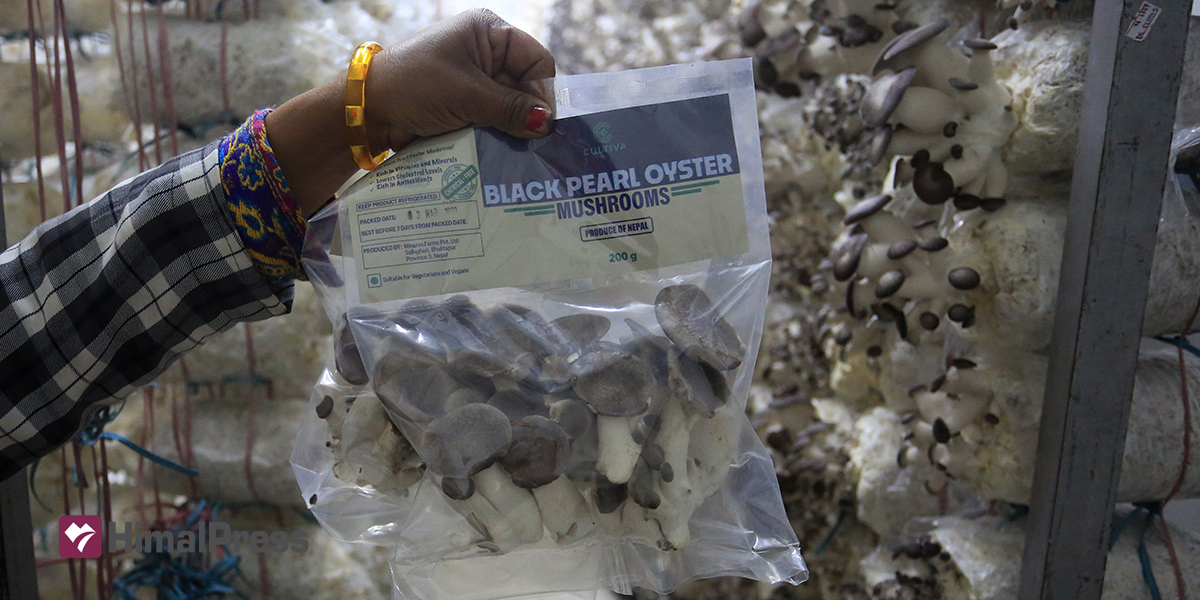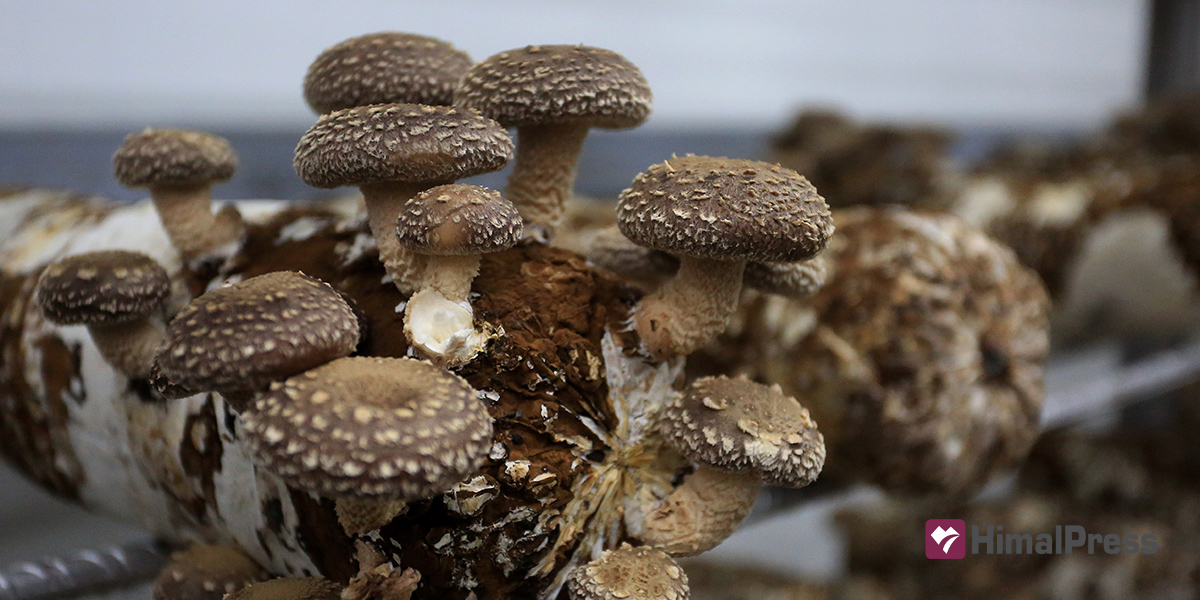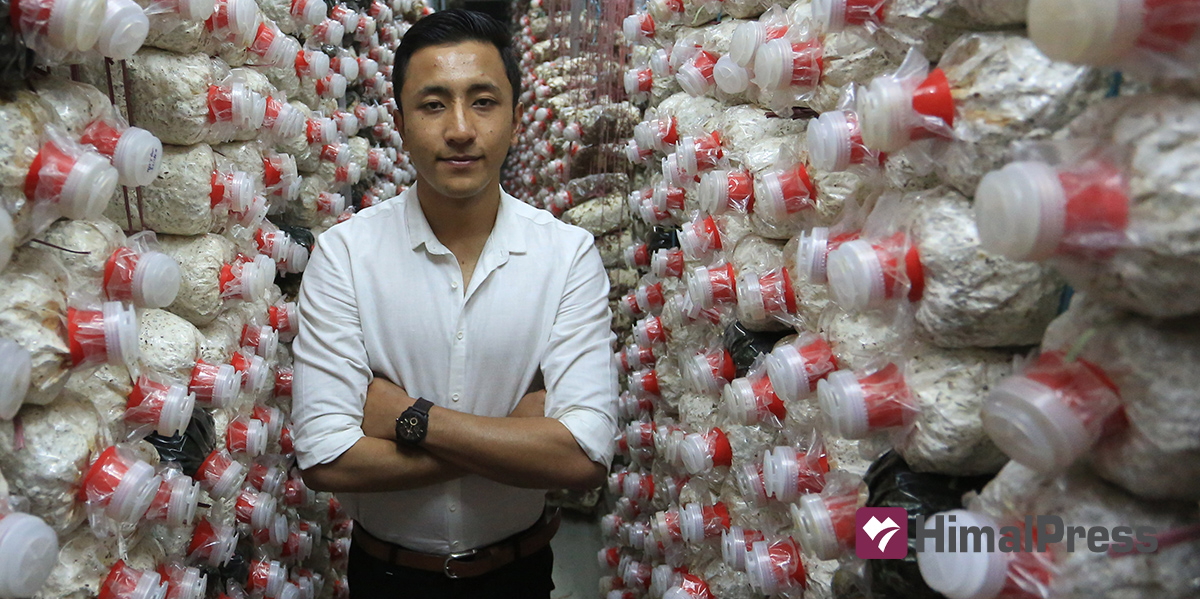
KATHMANDU: For over four decades, Saakha Group has been manufacturing construction materials such as steel and paints. Now, the third generation of the Saakha family has joined the family business by establishing an agricultural farm.
The group’s new venture, Minerva Farms, is situated in Katunje, Bhaktapur, and produces approximately 400 kilograms of mushrooms daily, as per Sarthak Saakha, a promoter of the farm. Currently, the farm employs 12 people.
When asked about the group’s foray into the agricultural business, Sarthak stated: “Most of the businesspeople are involved in the manufacturing and trading business. As the country’s farm productivity is dwindling, we felt the need to do something in the agriculture sector.”
Minerva Farms was established in 2020 with a focus on mushroom production, according to Sarthak Saakha. “We have the capacity to produce approximately 150 tons of mushrooms annually, and we plan to gradually increase production,” he added.
 The farm currently produces four types of mushrooms: king oyster, black pearl oyster (a hybrid breed), shiitake, and button. “We are the only farm in the country producing shiitake mushrooms year-round, and we are also the only farm producing black pearl oyster mushrooms,” Sarthak stated.
The farm currently produces four types of mushrooms: king oyster, black pearl oyster (a hybrid breed), shiitake, and button. “We are the only farm in the country producing shiitake mushrooms year-round, and we are also the only farm producing black pearl oyster mushrooms,” Sarthak stated.
At present, the company’s mushroom sales are primarily focused on the Kathmandu Valley market. “People in the valley enjoy trying new foods, which helps us expand our market,” he explained. However, the group plans to expand into markets outside the valley in the near future.
Saakha stated that the mushroom market is growing steadily each year. In 2018, per capita mushroom consumption was 250 grams, and it has been increasing by approximately 10% annually.
Currently, the market for the three mushroom varieties produced by Minerva Farms is small, with button and flag mushrooms dominating 90% of the market. However, Sarthak expressed confidence that demand for the other three varieties will gradually increase.
Minerva Farm sells its mushrooms under the ‘Cultiva’ brand, which is available at retail outlets such as Bhat-Bhateni, BigMart, FreshKTM, and FarmShop, among others. In an effort to reach a larger customer base, the company has recently started sending Cultiva mushrooms to local vegetable markets as well.
 Sarthak also revealed that the company has plans to establish its own stores, but it may not be feasible immediately due to the limited variety of mushrooms currently produced by the farm.
Sarthak also revealed that the company has plans to establish its own stores, but it may not be feasible immediately due to the limited variety of mushrooms currently produced by the farm.
Minerva Farm currently holds a small share of the mushroom market of the Kathmandu Valley. Sarthak Saakha stated that this is due to mushrooms not being a daily consumable product, and the company plans to promote them as such.
Because Cultiva mushrooms are grown in a climate-controlled environment, they can be produced year-round. In addition, they are free from chemical fertilizers and pesticides, making them 100% organic and beneficial for health. The company is marketing Cultiva mushrooms as a safe food.
Minerva Farms anticipates that the growing trend of vegetarianism will increase demand for mushrooms in the future. Sarthak explained that mushrooms are a tasty and healthy alternative to meat, rich in vitamins and minerals while containing zero fat.
The king oyster mushroom, which has a thick stalk, offers many health benefits, according to Sarthak. Additionally, the company developed the black oyster mushroom as a hybrid of straw mushrooms found in European countries and Japan, resulting in a unique taste.

These two varieties, king oyster and black oyster, are available for around Rs 350 per kg. However, shiitake mushroom is more expensive and costs around Rs 800 per kg. It generally takes 9 to 12 months to harvest shiitake mushroom, but Sarthak said they are trying to bring down the harvesting period to six months. Other mushroom varieties become ready for harvest in one to one and a half months.
“Mushroom prices keep fluctuating in the market because of the demand and supply situation. However, our prices won’t fluctuate much because we have a controlled supply,” he added.
Although the farm directly employs 12 people, Sarthak said 30-40 people have been employed indirectly. “We will be employing 20-25 people once the farm starts full-fledged operation,” said Sarthak.
Nepal produces around 10,000 tons of mushroom annually. Commercial mushroom farming is done in districts such as Kathmandu, Bhaktapur, Lalitpur, Kavre, Chitwan, and Kaski, among others. Of late, mushrooms are being produced even in Tarai districts.

 Himal Press
Himal Press 











